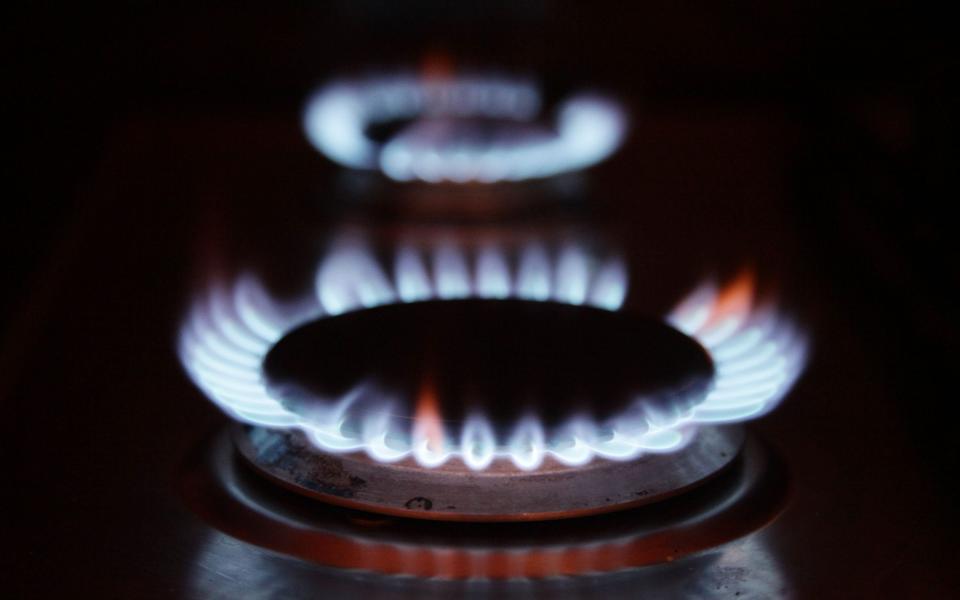Why gas and electricity prices are rising - and how to protect yourself

Millions of households could see their gas and electricity providers collapse this winter after a rise in wholesale prices sparked an energy industry crisis.
Wholesale energy prices have climbed to 11 times above normal levels – a record high – and firms have been left struggling to survive.
Smaller providers in particular have been squeezed. Two energy suppliers, Utility Point and People’s Energy, closed their doors recently, with four more firms understood to be on the verge of collapse.
Government rules mean no households will be left without an energy supply, but seeing your provider collapse can be a frustrating experience for customers. Telegraph Money looks at how to tell whether your supplier is in financial trouble, and whether there is anything that households can do to protect themselves from rising prices.
Will my energy bills go up?
If you are coming to the end of a fixed-rate energy tariff, it is likely your bills will go up. A fixed-rate tariff will lock your costs in, often for up to a year. However, energy firms have pulled the best deals, so finding a cheap fixed tariff on the market today may be difficult.
Price comparison websites may no longer be useful in finding the best deals. Compare the Market paused its energy comparison service last week "in order to protect its customers".
As of Monday, this service was still suspended, but other comparison sites still offered a limited number of deals.
Those who cannot secure a new fixed-term deal will be moved to their supplier's standard variable tariff.
Although these are usually the most expensive deals on the market, they are protected by the energy price cap, which sets upper limits on how much firms can charge. However, this cap now stands at its highest ever level. Regulator Ofgem increased the price cap by £139 to £1,277 last month in response to rising wholesale costs.
Analysts at HSBC warned that the further rise could lead to a 15pc increase on bills when the price cap is next reviewed in February. This could potentially push the cap up to £1,468, a further £192 increase.
What happens if my supplier goes bust?
If your supplier goes out of business, Ofgem will switch you to a “supplier of last resort”, and any credit with the older energy provider will be transferred across.
Affected households should take meter readings as they will need to pass these on to their new supplier.
Energy firms are worried that if multiple firms go bust at once, the suppliers left to pick up the pieces may not have the capacity for an influx of new customers.
Energy firms have asked the Government for loans to help transfer large numbers of customers from failed suppliers.
The creation of a state-backed body that would manage providers that collapse in the short term has also been suggested.
It has been reported that business secretary Kwasi Kwarteng would rather put measures in place to protect households than to prop up failing energy firms. This could potentially mean failing firms will be left to go out of business, with the Government offering no support.
Gillian Cooper of Citizens Advice said: “If you’re a customer of a failed supplier, Ofgem will move you onto a different one. This can take a few weeks, but your gas and electricity supply will continue in the meantime.
"Your new supplier will contact you and it’s good to be prepared beforehand. Take a note of meter readings, keep old energy bills and make a note of your account balance.
"Wait until your new supplier is appointed before cancelling any direct debits. This should all make the transition easier.”
How do I know if my supplier is safe?
The "big six energy providers", British Gas, EDF Energy, E.On, Npower, Scottish Power and SSE (owned by Ovo), together supply power to more than half of Britain's domestic energy customers.
There are around 50 energy suppliers operating in Britain. It is likely to be the smaller firms that will struggle to continue amid the rise in wholesale prices. These firms have less capital in place to protect them from fluctuations in prices.
You can check Ofgem's most recently available data to find the market share of your energy firm.
Some firms have clarified that they are not in financial trouble. The chief executive of Octopus Greg Jackson tweeted on Saturday that his firm was not one of the four mooted to be in financial difficulty.
Mr Jackson said: "As a global, very well backed company, we’re fine but plenty more are not. There’s no glee in seeing other companies fail, which is why we’ve launched a special recruitment drive to help some of those losing their jobs in those companies."
Green Energy UK also tweeted: "Just wanted to reassure all our customers that GE UK is NOT involved in any talks regarding bail outs and we have proactively hedged forwards to mitigate current market risks. Put simply, we are here to stay."
Meanwhile, Peter McGirr, chief executive of Green, a different firm with a similar name, said energy firms were "on their knees", and that they were "crying out" to the Government and the regulator for help, but this was falling on "deaf ears". The firm has around 250,000 customers.

 Yahoo Finance
Yahoo Finance 